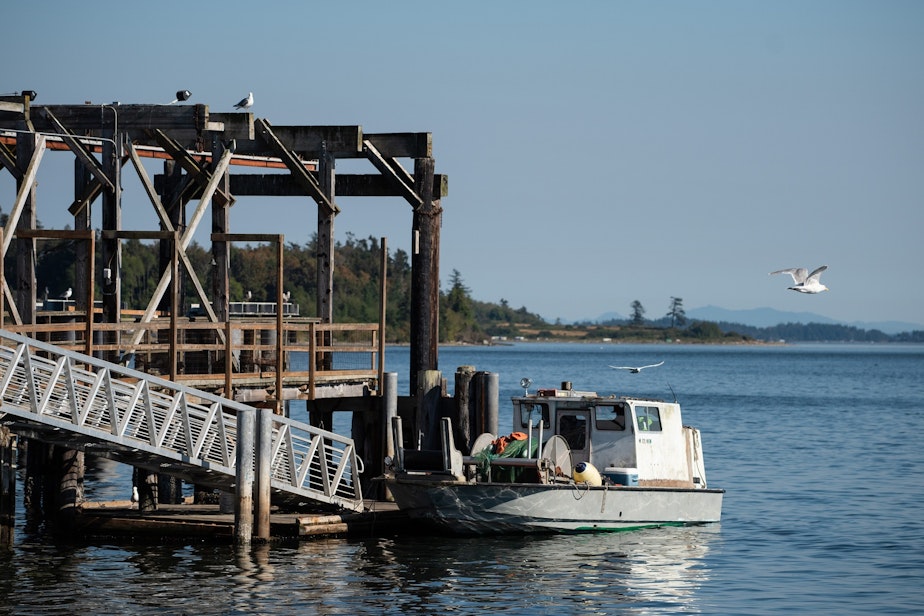That pain you feel about orcas? The Lummi know it well

Helping our relatives. That’s what Darrell Hillaire calls the project to offer salmon to the young whale known as J50.
Hillaire is a member of the Lummi Nation and uses the word relatives to talk about members of the natural world like whales and salmon.
“We have relations with them, don't we?” Hillaire said. “We harvest them. We have them at the middle of our table and at our gatherings. They're with us. The spirit of what they do is celebrated in our song and our ceremony. We give thanks to them. That's a relationship.”
The plight of orcas in an endangered pod has brought an outpouring of emotion around Puget Sound in recent weeks. That connection to these whales is something the people of the Lummi tribe know well.
It’s driving a tribal effort to catch salmon to bring to a sick orca in the pod. And it’s driving the work of a Lummi film crew documenting that effort.
Sponsored
Hillaire runs Children of the Setting Sun, a production house specializing in Coast Salish storytelling, which is named after his great-grandfather’s music and dance troupe. Now his team is following Lummi efforts to help nurse a young orca whale back to health in the wild. The nation is in charge of bringing Chinook salmon for the whale to eat.
This week, children of the Setting Sun filmmakers were onboard with their cameras capturing a test run. The boat’s crew pulled salmon from nets, loaded them in big tubs filled with water, and carried them across the water. The next morning, the group’s edited, six-minute documentary was up on YouTube.
Primary in everything the group does is sharing their stories with their own community, and with young people especially, Hillaire said. The goal is to tell Coast Salish stories with “today’s tools and gift them to our children so they might receive them and be inspired to do the work themselves,” he said.
All media are on the table: Books, theater, social media, and a podcast called Friends and Relatives.
Documenting and sharing Coast Salish stories is about identity. A sense of place, belonging, and connection. Bridging generations.
Sponsored
Interviewing a group of documentarians means that they are recording me the entire time I’m recording them.
The group’s work is like a river, said creative director Beau Garreau, who is Hunkpapa and Mnicoujou Lakota from the Cheyenne River Sioux Tribe.
“When you go down the river, you hit all these little tributaries. The orca story is a tributary that feeds back to the main channel.”
Documentary filmmaker, Jon Carroll, who is white, has grown personally from working with the indigenous organization, he said.
“I've learned to speak from the heart," he said. "I see so many people, so many of my friends who don't know how to speak from their heart, they only speak from their head.”
Sponsored
Now many people’s hearts are breaking for the struggling Southern Resident orcas.
For Candice Wilson, the starving whales are symbolic. She is Lummi and a board member of Children of the Setting Sun.
As she talks, she looks down and wipes tears from her cheek.
“We believe if we take care of the sea we take care of us. How well are we doing? Not too good. We have to do better,” Wilson said.
It comes back to our relationships with the natural world.
Sponsored
If you want to understand who whales are in Lummi culture, Hillaire has a suggestion. He says you can learn something from looking at the top of a story pole, also known as a totem pole.
“More often than not it's the Thunderbird or the eagle that is on top, and then you come down with the other relatives, the orca and the bear. At the bottom is us; the humans are always on the bottom. Why is that? Because we come last, because we're always taking from the others for ourselves.”
We should be able to give back to the other relatives, above us on the pole, Hillaire said, who have given so much to us.

